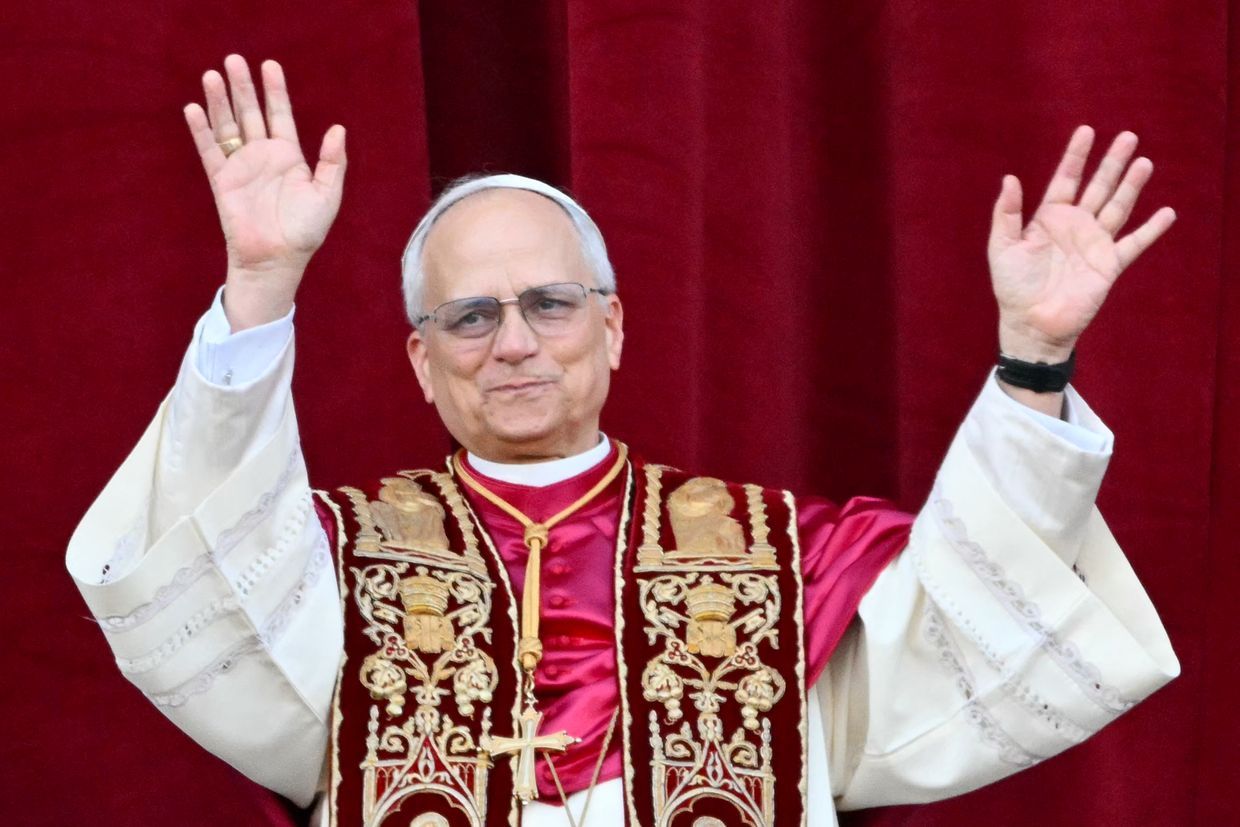You are using an out of date browser. It may not display this or other websites correctly.
You should upgrade or use an alternative browser.
You should upgrade or use an alternative browser.
OT: World Politics
- Thread starter zeke
- Start date
Wayward DP
Well-known member
Wayward DP
Well-known member
hockeylover
Well-known member
Wayward DP
Well-known member
axlsalinger
Well-known member
axlsalinger
Well-known member
lecoqsportif
Well-known member
It’s just Dotard making up his own reality again.
Wayward DP
Well-known member
MindzEye
Wayward Ditch Pig
The woke pope at it again

 kyivindependent.com
kyivindependent.com

Pope Leo XIV condemns Russia's 'imperialist' invasion of Ukraine
The newly appointed Pope Leo XIV condemned Russia's war against Ukraine in an interview on May 9, characterizing it as "a true invasion, imperialist in nature, where Russia seeks to conquer territory for reasons of power.”
axlsalinger
Well-known member
LeafGm
Well-known member
The woke pope at it again

Pope Leo XIV condemns Russia's 'imperialist' invasion of Ukraine
The newly appointed Pope Leo XIV condemned Russia's war against Ukraine in an interview on May 9, characterizing it as "a true invasion, imperialist in nature, where Russia seeks to conquer territory for reasons of power.”kyivindependent.com
This stands out all the more since the only thing we ever heard from the previous Pope on this conflict was mealy-mouthed #bothsides garbage.
Wayward DP
Well-known member
Wayward DP
Well-known member
"
“He always holds on to me and leads me to the bed,” she said in the testimony, which was reviewed by The Wall Street Journal. “It’s the feeling of being trapped.”
The incident is one of multiple allegations of coerced sexual intercourse that the woman has made against Khan, according to documents, her testimony and officials familiar with the allegations. The woman, who is married and has a child, alleges Khan performed nonconsensual sex acts with her on missions to New York, Colombia, Congo, Chad and Paris. Khan also did so multiple times at a residence owned by his wife where he stayed in The Hague, the headquarters of the ICC, according to her testimony.
Khan, through his lawyers, said it was “categorically untrue that he has engaged in sexual misconduct of any kind.”
The woman, a lawyer from Malaysia, stayed at the job because she didn’t want to leave one of the most important offices in human-rights law and worried she wouldn’t be able to pay the medical bills of her mother, who was dying of cancer, according to her testimony and ICC officials. She also came to fear retaliation from Khan, according to interviews with current and former ICC officials.
The accusations facing Khan have become entwined with the international conflict over Gaza. Just 2½ weeks after Khan learned of the allegations against him last spring, he surprised Israeli and U.S. officials by announcing the most dramatic arrest warrant in the court’s history—for Israeli Prime Minister Benjamin Netanyahu.
It was the first time in the ICC’s history that the court’s prosecutor sought a warrant for a Western-aligned democratically elected leader, a move the U.S. had been working to avert for months.
The timing of the announcement has spurred questions about whether Khan was aiming to protect himself from the sexual-assault allegations. The day before announcing the warrant application, Khan abruptly canceled a trip to Israel and Gaza that he had previously said was important to make his decision. "
WeHaveMoreCupsThanYou
I will get banned again soon, worry not.
Just put Bibi in prison and all is forgiven. Unlike these allegations against the prosecutor, we know for a fact that Bibi is a criminal.
WellPlayed
Well-known member
Jesus, are they doing it on purpose? Is this the new planking?

